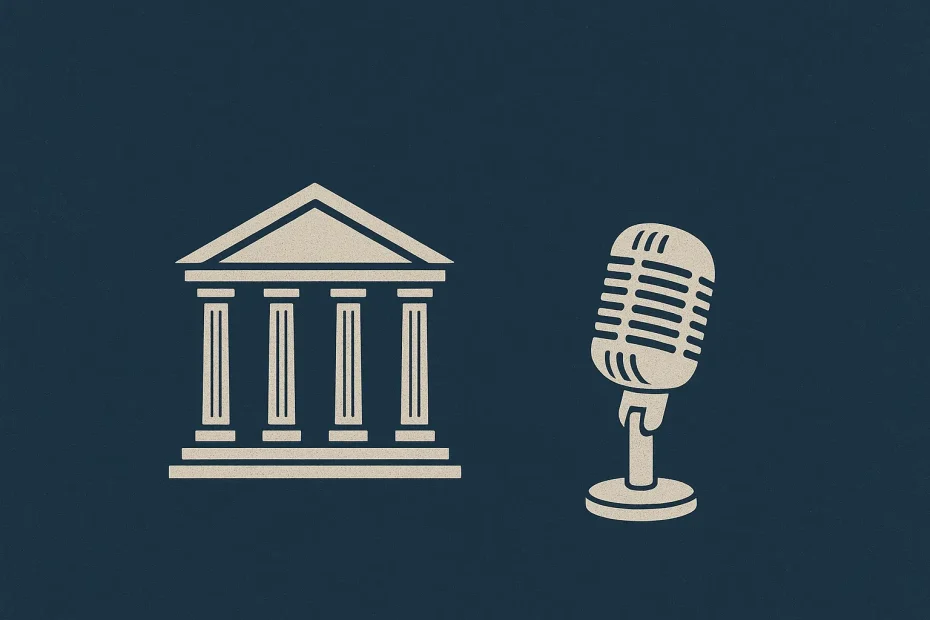In a powerful address at the Mumbai Press Club on the topic “Holding the Government to Account: The Role of an Independent Judiciary and a Free Press,” former Supreme Court judge Justice Abhay Oka emphasized the critical need for a fearless and independent judiciary and media in Upholding Democracy.
Speaking on Friday, Justice Oka highlighted the indispensable role of these two pillars in Upholding Democracy by ensuring accountability of the executive and safeguarding the fundamental rights of citizens.
Addressing Criticism of Media and Judiciary
Justice Oka acknowledged that critics increasingly accuse both the media and judiciary of aligning with ruling parties. He pointed out that corporate interests influence the media, and similar accusations of bias affect the judiciary. He said, “Today, we talk about the media’s falling standards, its control by corporates, and its inclination towards ruling parties…” Similar criticism has been for the judiciary in some quarters,” he said.
To counter such perceptions, he advocated for a judiciary and press that operate fearlessly and independently to keep the executive within its constitutional bounds.
Protecting Fundamental Rights
The judge stressed that the judiciary and the media must decisively act to protect fundamental rights, especially those under Article 19(1)(a) (freedom of speech and expression) and Article 21 (right to life) of the Indian Constitution, whenever someone violates them.
“Judiciary has to enforce the fundamental rights of citizens… It should not only protect the fundamental rights but also protect citizens against injustice and in fact it must come down heavily against any injustice,” he asserted. He urged the media to be vigilant and vocal against violations, leveraging its ability to shape public opinion.
Justice Oka underscored the importance of free speech, stating, “Without freedom of speech and expression, we can’t live a dignified life or meaningful life.”
He emphasized that violations of free speech encroach upon the right to life, placing a significant responsibility on courts to enforce these rights and address illegalities.
The Role of Judges and Media
Justice Oka clarified the distinct roles of the judiciary and media by explaining that judges determine the legality of actions, while the media evaluates their propriety.
He said, “When someone approaches me alleging a breach of the Article 19(1)(a) right, I examine whether they violate rights or commit any offence…” But I as a judge cannot say what that person has said may be proper or not. That is for the media to say,” he said. This distinction highlights the complementary roles of the judiciary in upholding the law and the media in shaping public discourse.
On Allegations Against Judges
Addressing a question about the lack of an FIR against Justice Yashwant Varma despite allegations, Justice Oka refrained from commenting due to his involvement in the in-house committee process. However, he rejected the notion that judges are above the law, while cautioning that excessive legal actions against judges could hinder their ability to perform their duties. “If there is no protection to judges, imagine how many FIRs would be lodged against the judges… will they be able to perform their duties then?” he remarked.
Bail and Perceptions of Bias
Justice Oka also addressed concerns about selective granting of bail, with some alleging that those close to ruling parties receive preferential treatment.
He emphasized that bail should be granted based on legal entitlement, not affiliations.
“A person, who is entitled to bail as per law, must get bail and there cannot be any dispute on this,” he said.
However, he called for a systematic study to substantiate claims of bias, stating, “The contention that the ones close to a ruling party get bail is one perception. It may be true also but a systematic study is required.”
Protests and Judicial Neutrality
Commenting on a recent Bombay High Court order that denied the Communist Party of India (Marxist) permission to protest, Justice Oka stressed that courts should actively protect protesters’ fundamental rights, concentrating only on those rights and not the protest’s cause, thus bolstering efforts in Upholding Democracy.
He said, “Protests also fall under Article 19(1)(a) rights.
The court actively determines whether someone violates fundamental rights and avoids focusing on the issue driving the protests, thereby reinforcing its role in upholding democracy.
Lokmanya Tilak’s Enduring Relevance
Reflecting on history, Justice Oka recalled the words of Lokmanya Tilak during his sedition trial 117 years ago, emphasizing their relevance today.
Tilak argued that an accusation of sedition must satisfy legal standards and that prosecution should not stem from personal or political disfavor.
“Only because someone feels I have committed offence of sedition by writing something in my newspaper, it doesn’t become sedition because somebody feels so… It must satisfy the law,” Justice Oka quoted, underscoring the timeless need for legal rigor.
Executive Overreach and Institutional Weakening
Justice Oka noted a recurring tendency among ruling parties to encroach upon citizens’ rights and weaken constitutional institutions. “Irrespective of party in power, there is always a tendency on the executive to encroach upon rights guaranteed in the Constitution and to weaken the Institutions under Constitution,” he said. He cited the Emergency period, when courts and media stood firm, as an example of their critical role in upholding democracy.
Environmental Rights and Judicial Challenges
Highlighting the right to a pollution-free environment under Article 21, Justice Oka stressed the judiciary’s duty to enforce environmental laws strictly. He expressed concern over the media’s lack of vigilance in some cases, such as frivolous FIRs against environmental activists.
